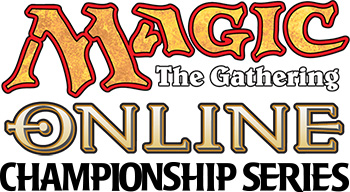Are you a Quiet Speculation member?
If not, now is a perfect time to join up! Our powerful tools, breaking-news analysis, and exclusive Discord channel will make sure you stay up to date and ahead of the curve.
The enigmatic MTGO user "Zwischenzug" has struck fear and despair in those who saw him in their queue, though his true identity remained a mystery. That changed in March when Paul Nemeth--winner of Constructed Player of the Year on MTGO--was invited to Renton to compete in the Magic Online Championship Series (MOCS) against some of the top online players in the world. (You can read his competitor profile here.)

Paul now does strategy videos for Quiet Speculation, piloting a diverse set of decks to strong finishes and talking through his plays in a very systematic and clear way. You can check out his video archive here. Most of them are only available to Insiders (QS has started to offer a lot of Insider-only strategy content in addition to their financial offerings) but they have unlocked one video here. This week I had the opportunity to interview Paul Nemeth, an elite Magic Online player who recently made the transition to the Pro Tour.
QS: You came to Magic from the world of competitive chess. Do you still get to play chess these days?
Paul: No, I seem to pick one game and focus on it for years at a time. For the past three years that has been Magic. The six years before that were World of Warcraft (WoW). Perhaps spending that much time on WoW was not a great life decision. Tournament chess was the eight years prior, age ten to eighteen. I won a state championship in chess (Ohio) which I am very proud of because I'm not even close to the best player in the state. I totally lucked out there. I'll take what I can get. Chess is hard.
QS: Did you ever teach chess? From your videos on QS it seems you have a real knack for breaking down complicated decisions.
Paul: Thanks! I dabbled briefly with teaching chess towards the end, but mostly I was taught chess. My two coaches, Michael Joelson and Calvin Blocker, were fantastic. I owe a lot to them for helping mold me in to the competitor I am today.
QS: How did you first get started on MTGO? What was the first Constructed format that you first started playing regularly?
Paul: Well, I've been a casual Magic player since forever. I was introduced to the game when I was too young to even understand the rules properly, and I didn't have enough money to consider taking the game seriously. One day when I was twenty-four, a couple months after Scars of Mirrodin was released, I thought to myself "I'm bored. I'm good at games. I've never taken Magic seriously. I want to see how far I can go if I do." So I drafted for a while and I got to 1800 rating, which I considered respectable, but I was still losing tickets. I started doing some internet research about going infinite, bought a garbage block deck for roughly 40 tix (Mono-Black Infect) and from there I easily went infinite.
QS: What format would you recommend to a player starting on MTGO for the first time?
Paul: Well, it depends on your goals. If you want to play magic without spending too much money, you need to follow the value. You'll probably pick a constructed format with a low cost of entry such as Block or Pauper, and play exclusively in Daily Events. Before you commit, you should check MTGO's schedule to find a format that will work with yours. I'd avoid Standard. As far as I can tell, everybody's win percentage in Standard is closer to 50 percent than in other formats. This is bad if you are a good player, but it can be good if you're inexperienced or if winning at Magic is not your highest priority in life. Most of the Standard decks are expensive, particularly the better ones, and rotation takes a chunk out of the value of your collection. If you want to have fun—and even among QS readers I think that's probably the best goal for most people—play whatever you can afford and find fun. That's what I did for my many years as a casual player. When I could afford it, I would play whatever seemed fun.
QS: How would you recommend players build the value of their collection on MTGO and avoid bleeding tix?
Paul: First, subscribe to QS and read a lot of articles, including older ones, and explore the forums. I'm being paid $0 to say that and do this interview. I'm here mostly because it's fun and hopefully I might pick up a fan or two which is always a good feeling. Not subscribing to QS sooner is one of the most stupid/obvious mistakes I've made as an investor. There's a 111% money back guarantee, and even if there weren't the information is worth much more to me than it costs. After that, you need to be honest with yourself about joining events. For almost every player in almost every format, when you join a draft you are paying money to have fun. Don't join a draft because you might open a chase mythic and make a profit. Don't join a draft because you lost the last one and want to win your money back.
QS: Cube draft is your favorite format. What is your approach to drafting the Cube? Is there a particular archetype you look for, or do you just try to stay open?
Paul: I think I've had my best results when I try to force a blue-white control deck, potentially splashing either red or black. I have found that staying open to different stuff can be more fun but also leads to drafting "trap" archetypes, such as Reanimator, which just aren't supported enough relative to how often they're drafted in this cube.
Reanimator can be a trap
QS: Is it possible to make tix playing Cube or is that purely for fun?
Paul: I make a little money playing Cube but it's certainly not going to pay my rent. When I play Cube it's because I want to have fun, not because I'm trying to make money.
QS: In your interview for the MOCS you mentioned that investing in MTGO makes up an important part of your income, and that you had almost 6,000 boosters and at one point had 600 Mutavaults. You don't mess around on small specs, huh?
Paul: Lately I have messed around with smaller specs, and what I've learned is that I'm not disciplined enough to manage them properly. With that in mind, smaller specs don't seem worth my time. Better to put down a lot of money on the few opportunities that I'm really confident in. Your situation may be different. I should point out that I started out with much smaller specs and only built up to those numbers as my confidence grew.
QS: How much profit did you make on those Mutavaults?
Paul: A little over 7,000 tix.
QS: That's a nice haul. What are some common mistakes that people make when they start speculating on MTGO?
[pullquote]"Don't buy any investment because somebody said a couple sentences. You need to put a lot of your own thought in."[/pullquote]Paul: Not subscribing to QS soon enough. I know that many times while reading QS I've learned useful things that I was unlikely to come up with on my own. I say that as somebody who made at least a few thousand tix net profit from investing prior to joining QS.
To give one example, I recently read some analysis on the QS forums which I found pretty convincing that estimated the value of the average piece of Power 9 should be a little over 100 tix. On day one, the MTGO classifieds were much lower than that so I put up an ad and snagged three pieces of P9 for a total 170 tix. The next day prices skyrocketed over the QS projected value and so I sold them for 605 tix total. That was 435-tix profit flipping three cards over twenty-four hours. Pre-QS I never would've touched something as volatile and difficult to predict as the P9 on day one. This is certainly not a typical result of the value of a QS subscription—P9 release on MTGO is a unique opportunity—but it's still a fun anecdote.
QS: Are there any cards you would recommend that readers pick up at the moment?
Paul: Don't buy any investment because somebody said a couple sentences. You need to put a lot of your own thought in. That said, boosters are a low risk, low reward option. As a new investor I would try to understand that part of the market first.
QS: It sounds like you have a lot of money invested in digital cards. How concerned are you about the v3 shutdown, which Wizards has now scheduled for July 16?
Paul: The transition is going to hurt some, but there should also be some good opportunities to buy while the market is low.

QS: What did it feel like when you won Constructed Player of the Year? What does winning that title mean to you?
[pullquote]"Winning that tournament was absolutely life changing in a very positive way."[/pullquote]Paul: Bittersweet. I've played in many of these events, and the one that I won I was not well prepared for at all. It was Standard so I figured there wasn't much to be gained by practicing a lot. I picked a random 4-0 list from the most popular archetype (Mono-Black), went 2-2 in two daily events, and got lucky enough to win the Constructed Player of the Year tournament. There had been a lot of events previously where I prepared a lot and felt like I was easily one of the best players with one of the best lists. I had three previous MOCS Top 8s, but each time I fell short. Better lucky than good.
That said, winning that tournament was absolutely life changing in a very positive way. It played a role in getting my series at QS. It made me several thousand dollars at the Magic Online Championship. I had a lot of fun and some important networking opportunities at the Championship, including meeting Mike Turian, who plays an important role in the MTGO economy, and Lars Dam who was very important to my success in Atlanta. And it qualified me for Pro Tour Journey into Nyx in Atlanta.
QS: You finished 24th at Pro Tour Journey into Nyx and were basically a match away from making Top 8. How did you arrive at your deck choice? Who are you testing with for Portland?
Paul: My preparation involved a week of testing, mostly with Lars Dam, the Magic Online Champion. At the end of the week, Martin Müller introduced us to the BUG list I played which seemed better than anything Lars and I had come up with. I went 3-3 in draft and 8-2 in Constructed, with both losses from mirror matches. (Thanks Martin.) We all finished in the money and are excited to be working together again. That said, three people is not enough. If you're qualified for Portland and you'd be interested in working with us please leave me a message on MTGO (Zwischenzug) or email me PaulANemeth@gmail.com.
BUG Control list that Paul played to 8-2 at PT:JOU
QS: How does playing high-level paper Magic differ from MTGO?
Paul: Paper Magic is much harder for me than MTGO. I can remember triggers, but having to manually do everything is mentally taxing so I end up making unusually stupid mistakes. Sideboarding is harder because I can't spread everything out and instantly sort it by converted mana cost.
QS: Given your love for Cube you must have been pretty stoked for Vintage Masters.
Paul: Cube is really the only limited format I've ever felt excited about. I don't enjoy spending money, so drafting just doesn't appeal to me.
[pullquote]"You need to be willing to quit drafting while you're ahead before you're playing against a bunch of grinders with experience in the format."[/pullquote]That said, I did try Vintage Masters and it was a lot of fun. Astral Slide decks were my favorite. I made a little profit despite never opening any power. I've recently changed my stance on drafting new sets from "never do it because it's negative EV" to "do a lot during the first week or so because lots of casual players show up and so few people know what they're doing it's actually reasonable EV and pretty fun." If you want to get that reasonable EV you probably need a lot of experience evaluating new cards or a lot more experience during that first week than most of your opponents. Also, you need to be willing to quit while you're ahead before you're playing against a bunch of grinders with experience in the format. No value there.
QS: Do you play Legacy and Vintage online?
Paul: I've played some Legacy. I always try to play in the MOCS so when it's Legacy month that's probably what I'm playing.
I'm looking forward to trying out Vintage. Hopefully I'll get to it in the next few weeks. If I do I'll definitely make a video.
QS: A lot of us are trying to get better at constructed Magic, but we have limited time to invest in improving. What are the best ways to spend time to level up faster? Do you recommend just getting reps by playing? Watching quality videos/streams? Are there any podcasts you listen to?
[pullquote]"If you want to improve, my first piece of advice would be to slow down your pace of play." [/pullquote]Paul: If you want to improve, my first piece of advice would be to slow down your pace of play. Think things through, think ahead, stop making stupid errors. You may need to play a little faster in important paper events to avoid draws, but for most of your practice thinking things through is more important than getting reps. If you have limited time you should probably pick one deck in one format and stick to it as long as reasonably possible. That advice is pretty good even if you have a lot of time. I think streams can be a good option when you don't have the time or energy to play matches, but they're probably not as time efficient as actually playing matches. It's better if you have your own money/rating/ego on the line to force you to care more and think more. You should be somewhat upset with yourself when you make stupid mistakes in practice, but be ready to instantly forgive yourself for those same mistakes in a big tournament so they don't distract you during the rest of your matches.
QS: Do you watch your replays after games? I feel like this is an underutilized resource for most players--do you agree?
[pullquote]"You should be somewhat upset with yourself when you make stupid mistakes in practice, but be ready to instantly forgive yourself for those same mistakes in a big tournament"[/pullquote]Paul: Analyzing my games in chess was certainly a huge part of my development as a competitor. Magic is pretty different because of the dangers of becoming results-oriented. Also, Magic has had many problems over the years with replays not working. I prefer to just play slowly and try to think everything through well the first time. I think you're right that it can be an important tool in improving your game.
QS: What do you enjoy doing when you are not gaming?
Paul: Frankly, I have no idea what you are talking about. Are you saying there's more to life than gaming?
If you have a question for Paul feel free to leave a comment.
-Alexander Carl (@thoughtlaced)






Awesome interview. Thanks!